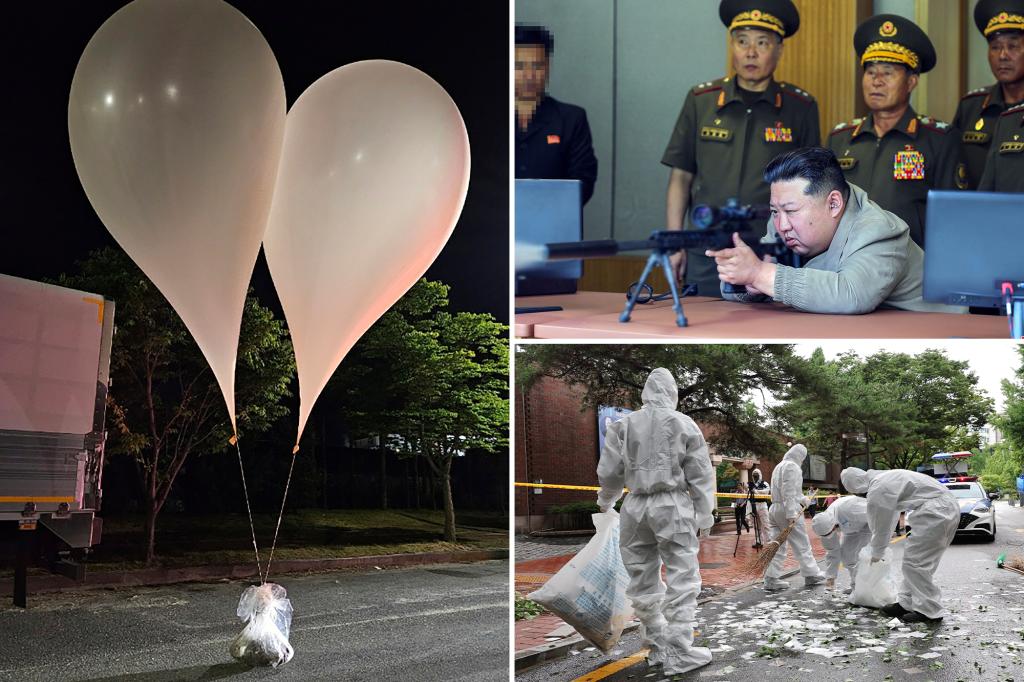North Korea has recently launched more than 160 balloons carrying trash across its southern border into South Korea, according to reports from Yonhap News Agency. These balloons were discovered by South Korea’s Joint Chiefs of Staff in Gyeonggi Province, which surrounds the capital city of Seoul. This follows a previous incident earlier in the month where around 420 balloons were detected by the JCS.
The trash bundles containing paper, plastic bottles, and household garbage are part of a series of tit-for-tat actions between the two Koreas. North Korea has been engaging in Cold War-style tactics, including flying balloons filled with wastepaper, cloth scraps, cigarette butts, and even manure toward South Korea. The North claims these actions are in retaliation against South Korean civilian activists who fly anti-North Korean propaganda leaflets across the border.
In a concerning incident, trash carried by at least one North Korean balloon fell on the South Korean presidential compound in July, raising worries about the vulnerability of key South Korean facilities. However, officials clarified that the balloon contained no dangerous materials and no one was injured as a result. The ongoing tensions between the two countries show no signs of abating, with both sides engaging in various forms of propaganda and countermeasures.
South Korea has responded to North Korea’s trash balloon launches by using front-line loudspeakers to blast propaganda messages and K-pop songs toward the North. These actions are part of broader efforts to counter North Korea’s growing nuclear ambitions and to push back against its aggressive tactics. The situation is further complicated by South Korea’s joint military exercises with the United States, which have also contributed to heightened tensions in the region.
The trash balloon incidents are just one example of the ongoing hostility and back-and-forth provocations between North and South Korea. These actions not only reflect the deep-rooted animosity between the two countries but also demonstrate the potential risks and instability in the region. Both sides continue to engage in provocative actions and rhetoric, threatening the fragile peace and stability that currently exists on the Korean Peninsula. The international community is closely monitoring the situation and working to prevent any further escalation of hostilities between the two countries.
As North Korea continues to engage in provocative actions such as launching trash balloons and engaging in propaganda warfare, the situation on the Korean Peninsula remains tense and unpredictable. The ongoing tit-for-tat actions between the two Koreas only serve to exacerbate regional tensions and increase the risk of conflict. It is crucial for both sides to exercise restraint and engage in dialogue to defuse the situation and work towards lasting peace and stability in the region. The international community plays a critical role in supporting efforts to prevent further escalation and find a peaceful resolution to the longstanding issues between North and South Korea.


